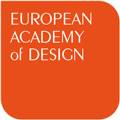Doctoral education in design is gaining strength worldwide with an increasing population of graduates, programmes, and research outputs. Nonetheless, design itself is changing; contemporary sustainability challenges and social values transform how design research impacts the world outside of academia. This track aims to explore and understand the social impact of design research beyond academia.
Social impact can be understood as “intended and unintended social consequences, both positive and negative, of planned interventions (policies, programs, plans, projects) and any social change processes invoked by those interventions.” (Vanclay, 2003). Social impact is “the changes that happen to people, the community, and theenvironment (Parrett, 2019). Social impact includes social, economic, environmental, and wider community changes, which can be positive, negative, intended, or unintended. (Design Council, 2020).
Design doctoral research and education are increasingly tackling bigger societal problems in the public and private sectors and within other organisations capable of social innovation, such as NGOs, think tanks, research institutes, social enterprises, citizen action, and community organisations. It is a concern to understand the social impacts of design research in today’s world and evaluate the implications of applying it in diverse contexts. The design community lacks clarity on resources, processes, and activities to support and situate doctoral design activity that demonstrably addresses stakeholder needs. Furthermore, the value of design research is not often understood by organisations that could benefit from it.
This track is organised by DocS4Design, a three-year Erasmus+ project involving six partners from Europe, the UK, and North America, to map out the diversity of doctoral education practices in design schools and continue the discussion development of 21st-century doctoral education in the field of design. This reflection can support better-suited doctoral programmes and more focused design interventions in the future.
Submissions are now closed.
We invited authors to submit a 3000 – 4000-word paper that addresses one or several of these themes (listed in the above call, we ask authors to choose at least two themes). The accepted authors will summarize their paper and participate in plenary panels around the four themes above. These presentations will be hosted at Aalto University, Espoo. To better allocate papers to panels, we asked authors to indicate which of the four themes is the primary thematic area and what is secondary.
Additional information on the submissions for Espoo can be found on their individual host website >


